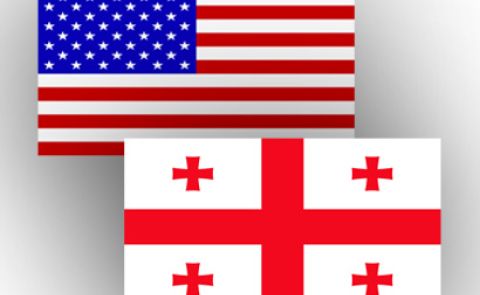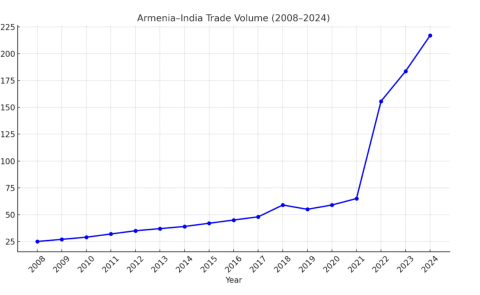
Increasingly Distant Neighbors: The Strained Diplomacy between Baku and Teheran

The relations between Iran and Azerbaijan seem unable to break free from the spiral of provocations and diplomatic incidents that have entangled them for over two years. As time passes, the issue is increasingly affecting ordinary citizens.
On June 3, for the second time in as many months, Azerbaijani authorities issued a travel warning to their citizens, strongly recommending against visiting Iran. Shortly thereafter, on June 16, the Iranian Embassy in Baku announced that, starting from June 23, Iranian citizens intending to travel to Azerbaijan would be required to apply for a visa online or through the Embassy of Azerbaijan, subjecting Iranian travellers to the same visa regime that most international visitors currently face.
The removal of travel facilitation comes as no surprise. Tensions began to escalate after an armed attack on the Azerbaijani embassy in Tehran on January 26, which resulted in the death of an employee and prompted Baku to evacuate its embassy in Iran. This was followed by a series of divisive incidents, actions, and reprisals in the coming months. Beginning in February and continuing in the following months, Azerbaijan carried out a series of arrests targeting individuals suspected of collaborating with Iranian security services. On March 28, Azerbaijani parliamentarian Fazil Mustafa was shot and wounded outside his home, and Azerbaijani Foreign Ministry spokeperson Aykhan Hajizada accused Tehran of being behind the attack. Tensions peaked in April when Baku summoned Tehran's ambassador to announce the expulsion of four Iranian diplomats for activities deemed "incompatible with diplomatic duties".
It was against this backdrop that the travel warning against visiting Iran was issued. In March, during the ongoing diplomatic dispute between the two countries, Farid Safarli, an Azerbaijani student visiting his girlfriend in Iran, went missing. It was only after three months, in early June, that the Azerbaijani Ministry of Foreign Affairs informed the family that the young man had been arrested and charged with espionage.
The state and resolution of these tensions are closely tied to the broader geopolitical picture. Throughout Azerbaijan's thirty years of independence, relations between the two neighboring countries have always been tense. However, the second Nagorno-Karabakh conflict has exacerbated the already delicate state of their mutual relations. Iran has historically enjoyed positive relations with Armenia, seeking to counterbalance Turkey's growing presence in the South Caucasus. Concerned about the potential link between Azerbaijan and the sizable Azerbaijani community in Iran, Iran has always been willing to fill Armenia's isolation.
The outbreak of the second Nagorno-Karabakh conflict resulted in Azerbaijan regaining control over some of its territories previously controlled by Yerevan. Moreover, during the peace talks between Azerbaijan and Armenia, Baku demanded the opening of the so-called Zangezur Corridor, a road connecting Azerbaijan with Nakhchivan, an Azerbaijani exclave bordering Turkey. The opening of the Zangezur Corridor was a condition in the 2020 ceasefire agreement, which obligated Armenia to “ensure the safety of transportation links between the western regions of the Republic of Azerbaijan and the Nakhchivan Autonomous Republic in order to ensure the unimpeded movement of people, vehicles and cargo in both directions.” This project, which connects Azerbaijan to Turkey and provides Ankara with a direct and efficient route to the Caspian Sea, has unsettled Tehran. Iran stands to lose relative influence in the South Caucasus to a historical rival and NATO member state. Moreover, the border with Armenia is crucial to Tehran, which fears that Armenia could lose control of the corridor and trade between the two countries could be disrupted. High-ranking Iranian officials have repeatedly voiced support for Armenia's territorial integrity. This position was made clear by President Raisi, who defined Armenia's territorial integrity as a "red line" for Tehran. In May 2022, the Iranian ambassador to Armenia reiterated this position right on the Armenian-Iranian border, in the Armenian province of Syunik, where the Zangezur corridor is supposed to pass.
Tehran's strong opposition to the Zangezur Corridor has angered the Azerbaijani authorities and triggered an information war between the national press of the two countries. The Iranian newspaper close to the Ayatollah, Tehran Times, published interviews defining Azerbaijan as an “accomplice of the Zionists in the murder and crime against the oppressed Palestinians.” Azerbaijani media also made accusations of lack of Muslim solidarity. The “Modern.az” news website accused Iran of embracing "the barbaric Armenians, whose hands are stained with the blood of Muslims”. Azerbaijani news agencies published irredentist statements supporting the possible secession of the Azerbaijani majority provinces in Iran. The situation became so tense in the fall that in September 2022, Iran held massive military exercises along the Taras River, right on the border with Azerbaijan, which Azerbaijan and Turkey reciprocated a few months later in December.
While Iran is concerned about Azerbaijan's potential influence in its northern provinces, Baku also has reason to be concerned about its neighbor's influence in its domestic politics. A radical Shia group called the Hosseinites is active in the country, advocating for an Islamic regime similar to that of Iran. The group is affiliated with the so-called "Axis of Resistance," along with the better-known Hezbollah and Hamas, and its members primarily belong to the Talysh minority, which resides in southeastern Azerbaijan, along the Iranian border. In 2018, the group was accused by Baku of being involved in the assassination of Elmar Veliyev, the mayor of Ganja.
In addition, relations between Azerbaijan and Israel have become increasingly close. In particular, the relationship between Israel and Azerbaijan has seen significant development in the military sphere. Over the years, Israel has played a pivotal role in providing Azerbaijan with advanced weaponry that Turkey could not provide. This strategic partnership has contributed to the building of an arsenal and military superiority that ultimately played a crucial role in Baku's success in the 2020 Nagorno-Karabakh war. While the two countries previously had limited political engagement, despite military cooperation and the presence of a significant Jewish community in Azerbaijan, their relations have strengthened significantly since the end of the conflict. High-level visits have become more frequent, and in November 2022, Azerbaijani authorities opened an embassy in Tel Aviv, overcoming previous concerns about potentially alienating other Muslim allies. Tehran perceives the increased cooperation between Israel and Azerbaijan as a significant threat and source of vulnerability, given that approximately 20 percent of Iran's population is composed of ethnic Azerbaijanis. Following Israeli President Isaac Herzog's visit to Baku on May 30, Iranian Foreign Ministry spokesman Nasser Kanaani tweeted on June 5, "What should scare the people of Azerbaijan is the Zionist regime, not civilized and Islamic Iran."
The protests that erupted in Iran after the death of Mahsa Amini further aggravated the situation. As young people and women took to the streets throughout the country in protest for women's rights and against rigid moral and religious laws, demonstrations were also organized in the mostly Azerbaijani populated regions of the country, where protesters joined the popular anger, claiming their right to "freedom and national government. Dealing with domestic instability and knowing that Moscow is unlikely to be a game changer, Tehran feels even more insecure in the regional arena.
However, no matter how severe the diplomatic attacks between the two countries become, it is unlikely to bring a substantial halt to their relations. In fact, Azerbaijan occupies a central position in the so-called "Middle Corridor," a modern-day Silk Road designed to connect Europe to China through the Caucasus and Central Asia. It also serves as a key crossroads on the North-South Corridor, which connects India to Russia via Iran and Azerbaijan. Maintaining economic ties between the two countries is therefore a priority for both, as it is crucial to their interconnectedness with the outside world. In particular, undermining the stability of the North-South corridor would leave Iran, already facing sanctions, without one of its main channels for maintaining relations with the outside world. Moreover, tensions with Azerbaijan are likely to spark unrest in the country's northwestern provinces and further undermine the stability of the regime. Rather than breaking off relations completely, Iran is likely to find its place in the well-known regional architecture of the South Caucasus, as evidenced by talks on a 3+3 format, which envisages cooperation between the three South Caucasian countries and the three regional powers. A possible direction for the settlement of the disputes between Iran and Azerbaijan was indicated by the recent meeting of the foreign ministers of the Non-Aligned Countries in Baku.
According to the local press, the two ministers held positive talks on the South Aras Corridor, a transport route that would run 5 kilometers south of the Armenian-Iranian border and connect Azerbaijan with Nakhchivan. In March 2022, Azerbaijan and Iran signed a Memorandum of Understanding on trade and communication links between the Eastern Zangezur economic region of the Republic of Azerbaijan and the Nakhchivan Autonomous Republic through the territory of the Islamic Republic of Iran. While it is unlikely that Baku will stop pushing for the creation of the Zangezur corridor, the possibility of opening a route through the Iranian territory can help improve the state of relations between Baku and Tehran.
In the midst of shifting dynamics and regional complexities, the intertwined fate of Azerbaijan and Iran continues to unfold. While tensions may persist and diplomatic challenges may arise, the interconnectedness of various actors in the Caucasus region acts as a moderating force, dousing the flames of potential conflict. As the pages of history turn and the tapestry of geopolitics weaves its intricate patterns, one thing remains clear: the ever-evolving relationship between Azerbaijan and Iran will be shaped not only by their differences, but also by the shared imperative of connectivity and cooperation.
Contributed by Eugenia Fabbri, young professional in EU, Caucasian and Central Asian affairs.
See Also


Armenia and India: Building New Bridges in Trade and Strategy

Between Tehran and Tel Aviv: Azerbaijan’s Neutrality Dilemma Amid Rising U.S.-Israel Tensions with Iran

From Neorealism to Neoliberalism: Armenia’s Strategic Pivot in Foreign Policy After the Nagorno-Karabakh Conflict

Georgia and Russia: New Turn in Bilateral Relations

